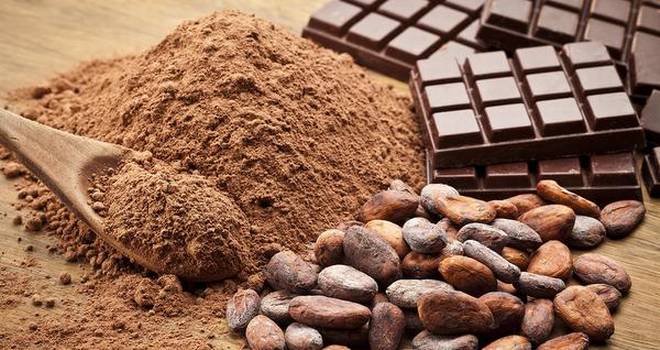The National Export Development Strategy (NED) has hinted it will “facilitate the downward review of 42.5 per cent local taxes on the cost of every bar of locally produced chocolate sold on the Ghanaian market”.
This is not just to whip up local consumption of chocolates but also get local processors competitive for the global market.
Ghana is ranked as the second largest producer of good quality cocoa. However, there is little processing and consumption of the cash crop.
According to the Cocoa Processing Company (CPC), Ghanaians consume only 400 grams of chocolate daily compared to other developed countries that consume twice the number.
In effect, Ghana enjoys only five per cent of the $28 billion global intermediate cocoa processing industry.
This trend, the recently NEDS - an initiative of the Ministry of Trade and Industry and mainly implemented by GEPA - aims to reverse.
The strategy document, which targets to attract $25.3 billion from Non-Traditional Exports (NTEs) by 2029, seeks to vigorously promote and support Ghanaian majority-owned manufacturing companies to undertake cocoa processing in Ghana and forward integration towards the selling of liquified chocolate mass or manufacturing of chocolates in the consumer market country.
Ghana is a powerhouse for premium cocoa. Even though the second-largest producer of cocoa in the world, the capacity of cocoa processing industries is slacking.
Figures from the Ghana Export Promotion Authority (GEPA) show that just 30 per cent of natural raw beans production was processed in the recent past.
A S.W.O.T analysis of the country’s cocoa processing industry has revealed the over-reliance on small scale farmers for the production of cocoa beans as raw material and funding syndication by COCOBOD for financing raw bean purchase from farmers as existing weaknesses that deserve strategic intervention.
NEDS is designed to update and realign the existing World Bank-financed National Export Strategy (NES) for Non-Traditional Exports with current government policies and key programs to give it an industrialisation thrust.
“For Ghana’s economy to be truly export-led, all stakeholders are enjoined to play their various roles in a coordinated manner and avoid working in silos,” Chief Executive of GEPA, Dr. Afua Asabea Asare, has pointed out.
Under the strategy are 17 integrated list of priority products including cashew (processed and in-shell), horticulture, processed oil seeds, fish and fishery, textiles and garments, natural rubber sheets, processed cocoa, aluminium products, services, plastic and pharmaceuticals, iron and steel, automobile, salt and sugar, machinery and components as well as industrial starch.
Latest Stories
-
GPL 2024/25: Bechem United ease past leaders Heart of Lions
10 minutes -
Edem Agbana expresses readiness to begin work as MP after completing registration
1 hour -
Katamanto fire: Gov’t must reconstruct the market, not the traders – Abuakwa South MP-elect
2 hours -
High Church of Africa inaugurates mineral water factory on 2nd anniversary
2 hours -
Ablekuma North results collation suspended over another disagreement
2 hours -
Kwakye Ofosu says 10 Heads of State will attend Mahama’s inauguration
3 hours -
Rwanda-backed rebels seize key town in DR Congo
3 hours -
Nominate Alban Bagbin as Speaker of 9th Parliament – Mahama tells NDC caucus
4 hours -
Russian newspaper says its reporter killed by Ukraine drone strike
5 hours -
Hamas releases video of Israeli hostage Liri Albag as ceasefire talks resume
5 hours -
New York becomes first US city with congestion charge
5 hours -
Severe winter storm puts much of US on high alert
5 hours -
Ebi Bright, Baba Sadiq lose parliamentary elections after court-ordered collation
5 hours -
NPP’s Martin Adjei-Mensah declared MP-elect for Techiman South constituency
5 hours -
EC declares NPP’s Patrick Yaw Boamah MP-elect for Okaikwei Central constituency
6 hours

